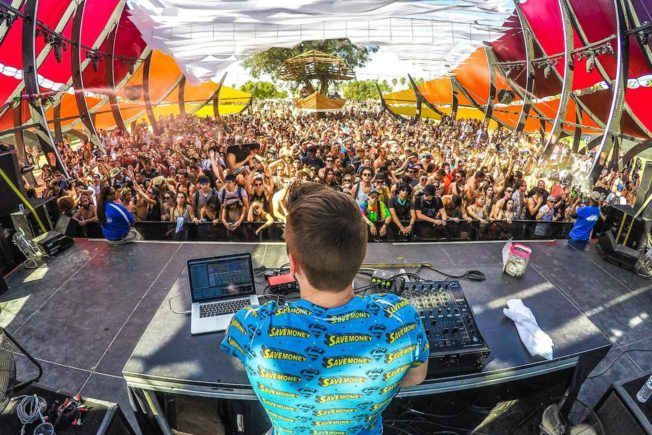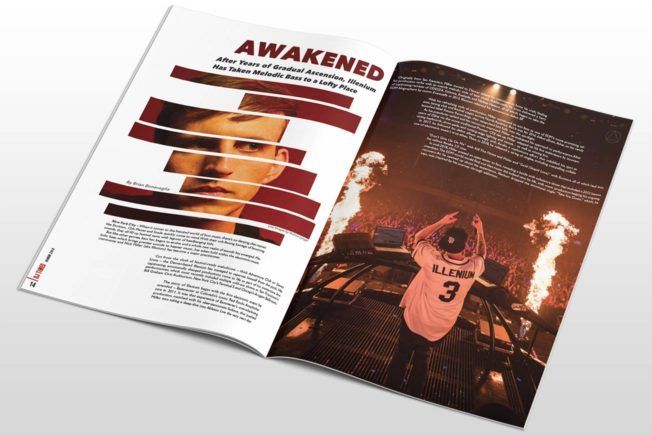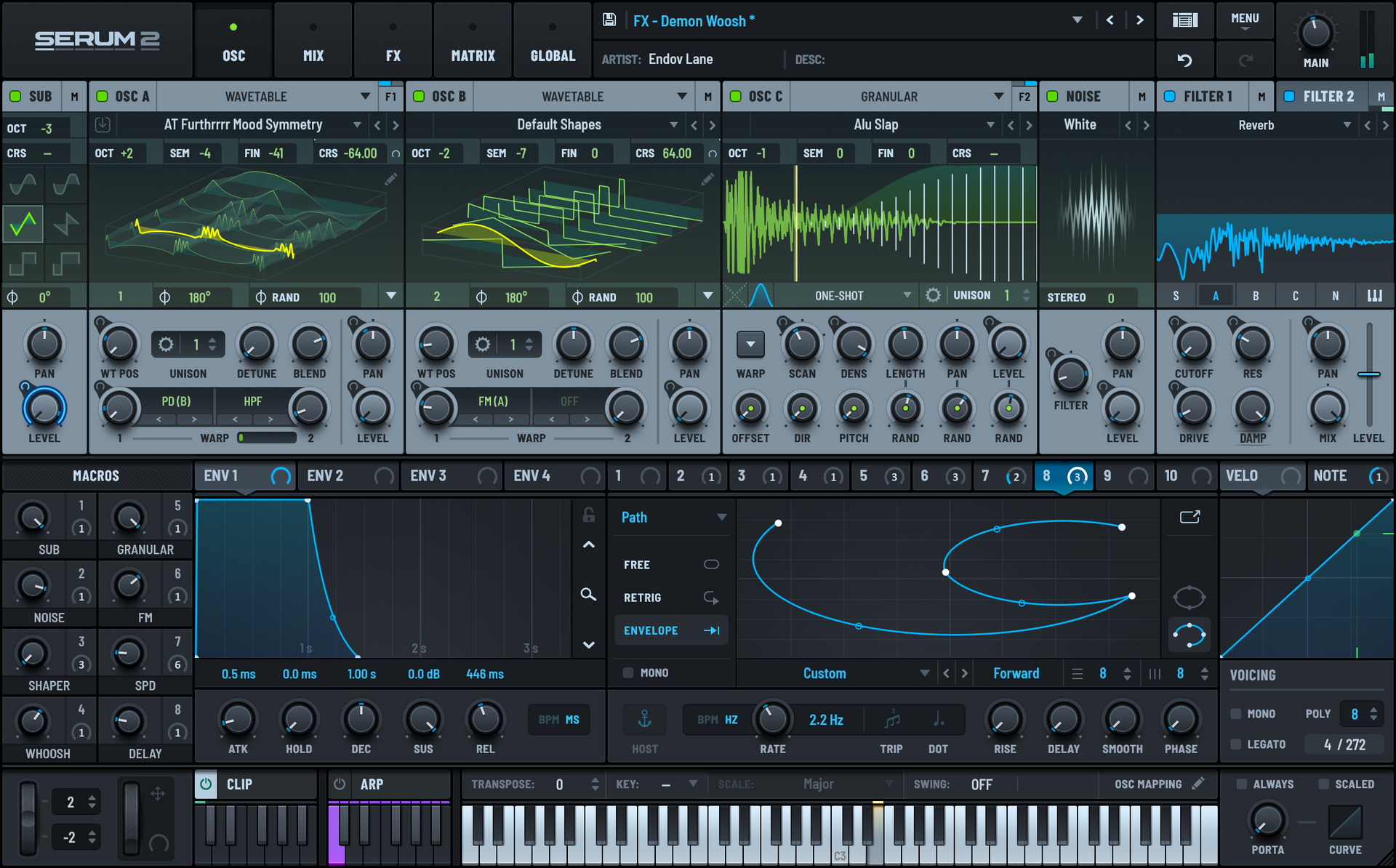Do You Need a Music Publicist? Here is Advice
Are you an independent artist wanting the chance of being discovered? You might need a music publicist. Learn what a music publicist does and how to find the right publicist to advance your career.

What Is a Music Publicist?
A music publicist is a specialist who manages media and public relations on behalf of a music artist or group. They represent their client by overseeing, shaping, and maintaining their public image. They serve as a bridge between their client and the public with the use of media.
Music publicists also represent various other types of clients in the music business. This includes record labels, music venues, festivals, music studios, and music schools like ICON Collective.
What Does a Music Publicist Do?
A music publicist finds media opportunities and generates media coverage for their client to promote various projects. Most often, publicists work to secure press coverage for their clients’ upcoming activities.
For example, if an artist has a new single release, their publicist will write a press release for the song. They then send the release to music journalists to cover.
What Are the Responsibilities of a Publicist?
Day-to-day duties depend on the client. A music publicist’s job description can include various duties and responsibilities. For example:
- Influence public perception by using strategic communication
- Organize and oversee publicity campaigns for their clients
- Become familiar with their client’s individual markets to deliver relevant coverage
- Build relationships with media outlets and journalists in the music scene
- Develop and leverage their network on behalf of the client
- Provide insight into their client’s public communications
- Develop an understanding of the media’s role in the music industry
- Assist clients with brand marketing and other marketing strategies
- Put together an electronic press kit (EPK) for their client
- Work with clients to develop a social media presence and social media campaigns
- Secure interviews, photo shoots, video shoots, live show reviews, etc.
- Write press releases, biographies, newsletters, blog features, an album review, social media posts, etc.
- Pitch music news, stories, new music, and other campaigns to various media outlets
- Secure media coverage to boost a client’s brand, fan base, and exposure
- Help to develop their client’s public image and brand
- Conduct market research, follow industry trends, and find appropriate media outlets for their clients
[yuzo id=”13031″]
When Do You Need a Music Publicist?

It’s easy for an artist to generate local buzz as they become more prominent in their scene. However, to reach the next level of notoriety, you’ll need a publicist.
These examples are worth paying a music publicist to oversee:
1. Releasing New Music on a Record Label
It’s a good time to bring in a publicist whenever you have a new album, EP, or single coming out on a prominent label.
Such a release represents a chance to boost exposure and reach potential fans in new parts of the world. With a well-run release campaign, you can go from unknown to famous in a manner of weeks.
2. Releasing a High-Quality Music Video
Music videos are excellent for building excitement around a release. They’re also helpful in securing exclusive placement on music blogs and other outlets that feature videos.
Video marketing is one of the most effective ways to promote an artist. They play out the story a song is telling. The visuals also help connect an artist with an audience on a level beyond the music itself.
3. Touring or Playing at a Music Festival
Touring or performing at prominent festivals mean your career is advancing. It’s worth paying a publicist to promote your upcoming gigs. It will boost exposure and generate excitement.
A good publicist will craft media releases, secure interviews, and attract attention to maximize audience turnout. It’s an excellent way to grow your fan base !
4. Securing an Exclusive Music Premiere or Debut
Landing an exclusive premiere on a music blog or magazine before its release is significant. It’s an excellent way to generate buzz and exposure before the release. It can also boost sales and attract new fans.
5. Your Career is Gaining Momentum
Are you pursuing music as a full-time career and becoming established in the scene? If so, then it may be time to consider a publicist.
An artist gaining momentum may not have time to self-promote. Here, a publicist can handle all the marketing strategies. It will also free time for the artist to focus on advancing their career.
5 Things to Consider Before Hiring Music Publicist Services

Publicity should be one of the first concerns for someone ready to advance their music career. Where a manager helps an artist develop their artistic profile, a publicist spreads the word about their client’s profile.
Before searching for a publicist, consider these five factors:
1. Develop Your Unique Artistic Story
Your story is more than the step-by-step process of how you ended up where you are. An artist’s story is what a publicist uses to pitch coverage.
Journalists and readers connect to a story. They don’t connect to name recognition or a sonic description. Figure out your story before working with a publicist.
2. Determine What Activities Are Worth Paying for Publicity
What activities do you have coming up? It may not be worth hiring a publicist if the answer is a string of local shows or an independent release on SoundCloud.
You may be better off doing your own PR first to promote these campaigns at the start of your career. Connect with local music writers, create social media campaigns, and use online music marketing services to generate local buzz.
This approach will also help you build relationships and understand public relations. You’ll be better prepared when you’re ready to hire a publicist.
3. Build a Solid Brand as an Artist
A strong brand can mean a significant social presence. Or, a compelling visual aesthetic. Branding is anything that sets you apart from thousands of other up-and-coming artists trying to make it.
If you have nothing that makes you stand out, there’s not much a publicist can do for you. It’s critical to build a brand and a public image as an artist !
4. Establish Online Presence and a Robust Social Media Presence
Social media marketing is a valuable asset for musicians. A strong social media strategy is essential for promoting your music, engaging with fans, and expanding your fan base.
Social networking also connects you with music industry peers and presents new opportunities. So, update your social media platforms and music website if you have one. Most importantly, interact with your fans and post engaging content on the regular.
5. Know Your Goals and Set Expectations
Be realistic with your goals and expectations. Misconceptions about music publicity can create false expectations and disappointments.
It’s crucial to come prepared! A music PR firm may have strict criteria for accepting clients. Many also plan music publicity campaigns months in advance.
It’s helpful to have reasonable goals before approaching a music publicist. Make sure they know what you’re aiming to achieve. Ask questions, talk about your concerns, and communicate at every step.
Also, expect highs and lows during the campaign. PR campaigns can be an emotional roller coaster!
How to Find a Music Publicist?

Once you reach a level when you need a publicist, finding one is easy. PR firms are always looking to take on new clients with great stories to tell.
Consider these five tips for finding a publicist:
1. Research Music Publicist Services
Do some due diligence and research PR firms for a potential publicist.
Consider these five methods when researching a publicist for musicians:
- Do a Google search. Find music publicist services that represent your genre of music . A PR firm with a roster of indie-rock bands might not be the best fit if you’re an electronic music artist.
- Once you narrow down a list of potential publicists, dig further to find more info . Look for artists they represent, a portfolio of campaigns, and anything else to make an informed decision.
- Search for the different musical acts a potential PR firm represents . Check the work they provided, such as press releases, interviews, feature placements, music blog articles, etc. Ensure the PR firm creates quality campaigns that align with your vision.
- Search websites like Yelp, Google My Business Reviews, and Glassdoor . Look for reviews, ratings, and complaints. See what people are saying about the publicist or PR firm.
- Contact other artists and ask them about their music publicist . Social media is a great place to connect with fellow musicians. Drop a message and inquire about their experience with a particular PR firm.
2. Check out the Client List of Public Relations Firms
Most PR firm websites like Planetary Group show their entire list of clients. Current and past. Researching a client list is the best way to choose a potential publicist.
Once you find a publicity firm with a relevant client list, run a search on their roster. Ensure their clients and campaigns align with your music. They will do a better job landing suitable coverage if they do.
3. Know Your Budget and Estimate the Cost of a Publicity Campaign
Good PR firms are not cheap. Big-name artists are likely pulling seven figures per year. They have the money to hire the best.
If you’re not there yet, aim lower for more affordable options. Many online PR agencies can customize a full strategy based on your budget.
Also, ask your potential publicist about extra costs. Avoid getting blindsided with an unexpected bill.
Also, if your budget is tight, consider freelance music journalists. They’re an excellent option for independent artists with smaller budgets. Most journalists are excited to cover new artists if they have a good story. A good publicist doesn’t need to be expensive to tell your story.
4. Reach out to Fellow Artists and Seek Referrals
Contact other artists you know at a similar stage when seeking a publicist. It’s likely they’re also looking and could have leads.
Also, network and meet artists with a good publicist. Ask if they can refer you to the right publicist. Many PR agents find artists from the referrals of industry friends or existing acts on their roster.
5. Build a Brand and a Unique Story That Attracts the Right Publicist
Publicists are in the business of selling memorable stories and brands. Get out and play shows, release music, create videos, engage with fans, etc. Start creating buzz to catch the attention of a publicist.
Also, ensure you have a quality electronic press kit (EPK). Make sure it’s easy to find and accessible. EPK’s help promoters, booking agents, venue talent buyers, journalists, labels, etc. learn more about you and your music.
The Benefits of Choosing a Great Music Publicist

A great publicist can boost an artists’ music career in a competitive media landscape. Here are four ways a publicist can help advance your career:
1. A Music Publicist Can Pitch News and Stories to Media Outlets
The publicist will land coverage in a variety of media outlets. For example, music blogs, radio airplay, television, magazines, and more. By spreading out coverage, the news will reach a larger number of people.
2. Good Publicists’ Have an Established Network and Professional Reputation in the Music Industry
Having a strong personal network and a good professional reputation is essential for publicists. They work hard to build those relationships!
For example, music journalists receive hundreds of coverage pitches each week. To stand out in the competition, it’s helpful for them to connect with journalists on a personal level. This approach helps them secure opportunities.
Another essential part of building relationships is understanding individual preferences. For example, a journalist’s taste and interests drive what they cover.
A good publicist will also maximize their efforts by shopping pitches that fit a journalist’s past work. They will then make one piece of news work for many writers.
For example, say an artist hires a publicist to pitch a new music video. A good publicist will consider different types of coverage surrounding the one video.
3. Great Music Publicists Understand Their Client’s Unique Story
Experienced publicists have an inherent sense of what excites journalists. To develop this skill, they must understand their clients’ stories.
Also, no two clients are identical. The right publicist will understand a client’s unique story and craft compelling narratives around it.
For example, any publicist can pitch a new song by its genre and record label. However, great publicists pitch the story behind the genre and label. For instance, why an artist makes music in a specific genre. Or, why they chose to release on the particular label.
4. A Publicist Can Develop a Media Campaign Using Different Elements of an Upcoming Album Release
Major labels often release a few singles from the album before it’s out. Each single is a different element. They may also record a music video for one or more singles on the album. Each video is an element, too.
These different elements can contribute to a publicity campaign. Good publicists see each element as an opportunity to expand coverage and build anticipation. They will also have the network to put those opportunities into action.
For example, they will secure news updates to focus on one element like a new single. They will then approach feature writers to write in-depth profiles for each element. They will also work with playlist curators to place singles in a prominent playlist.
Conclusion
A publicist is not the first person you should look for when building a team. However, when you reach the point where you have a public presence, a publicist will skyrocket your career.
At heart, publicists are storytellers. They work with you to tell your story through media campaigns and public-facing opportunities. With the right publicist, people will hear your music around the world.



